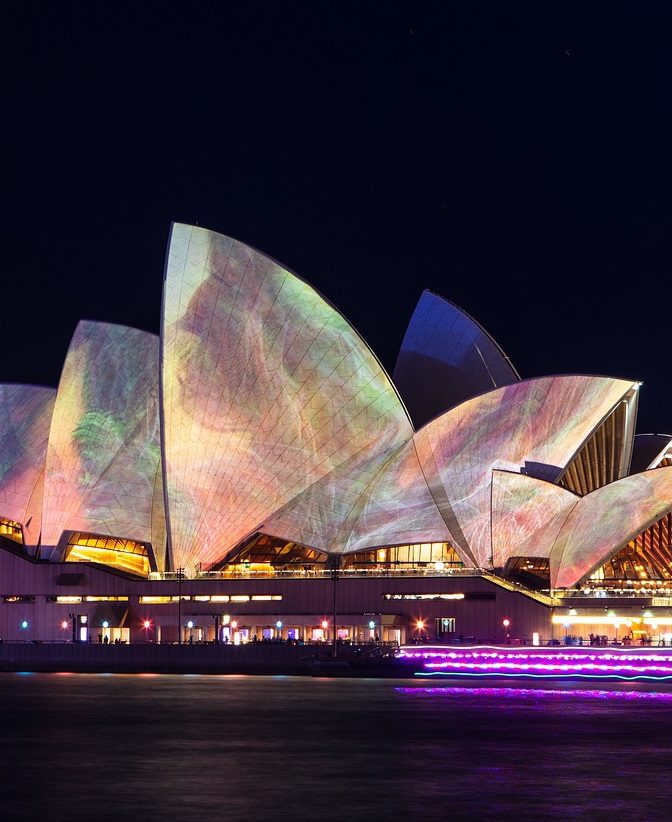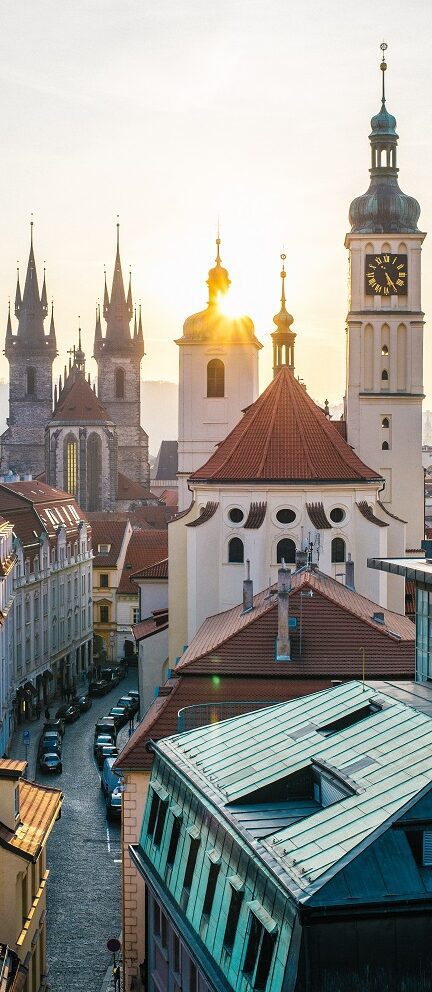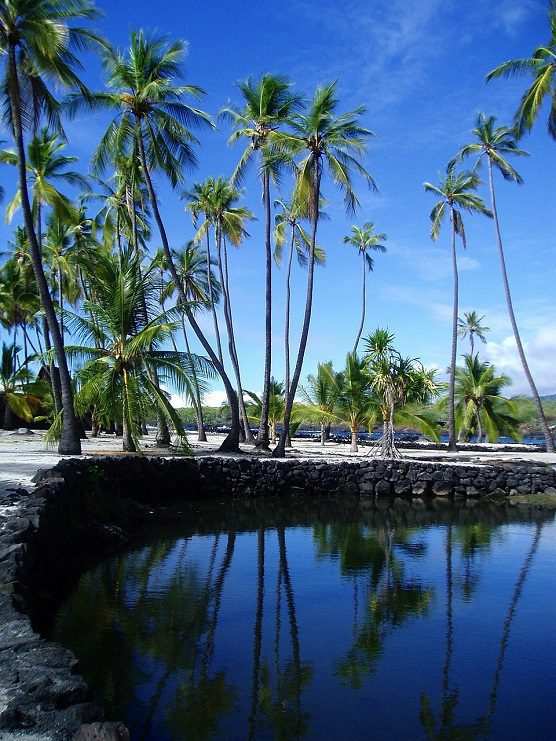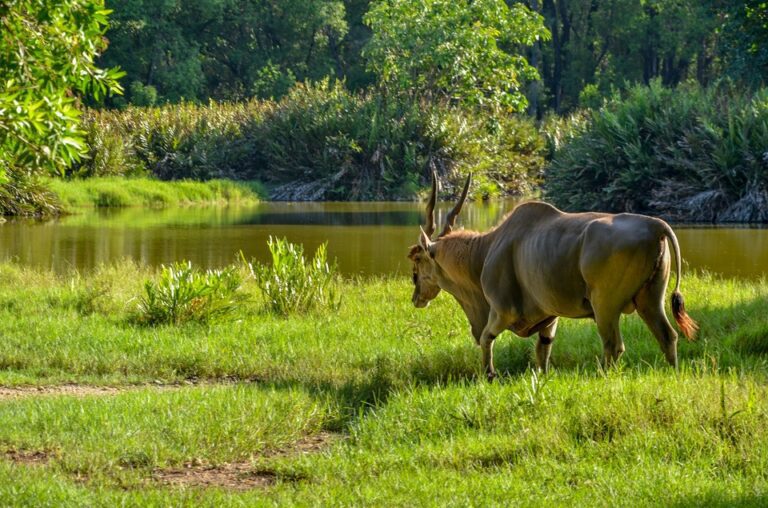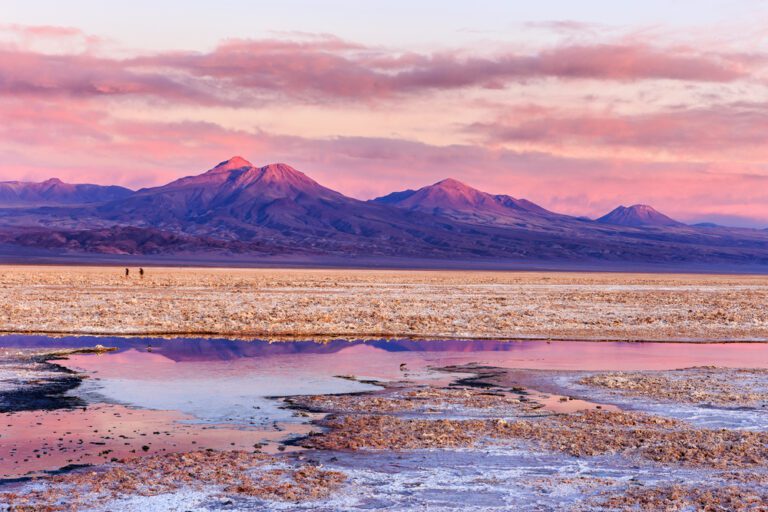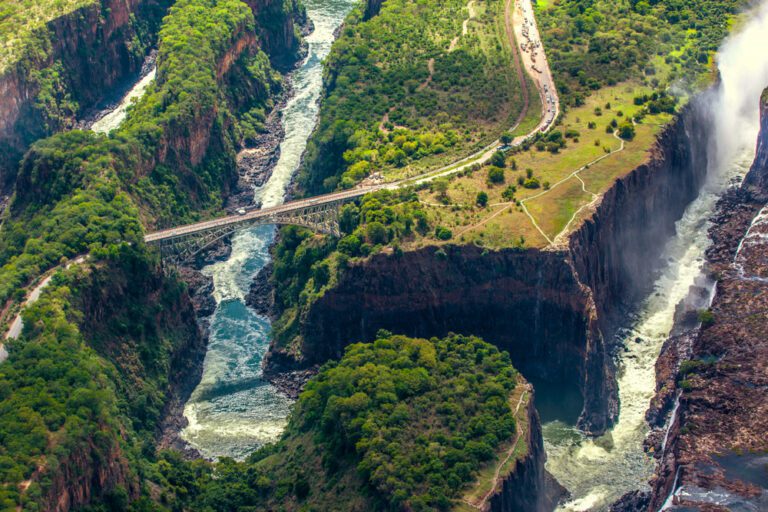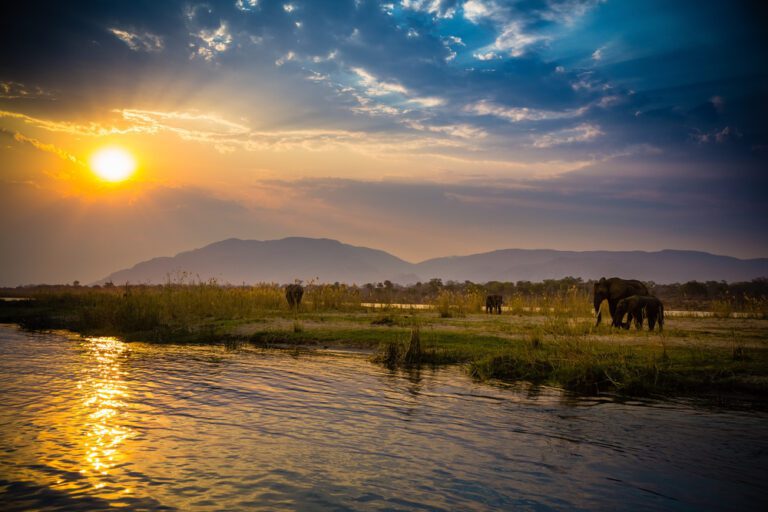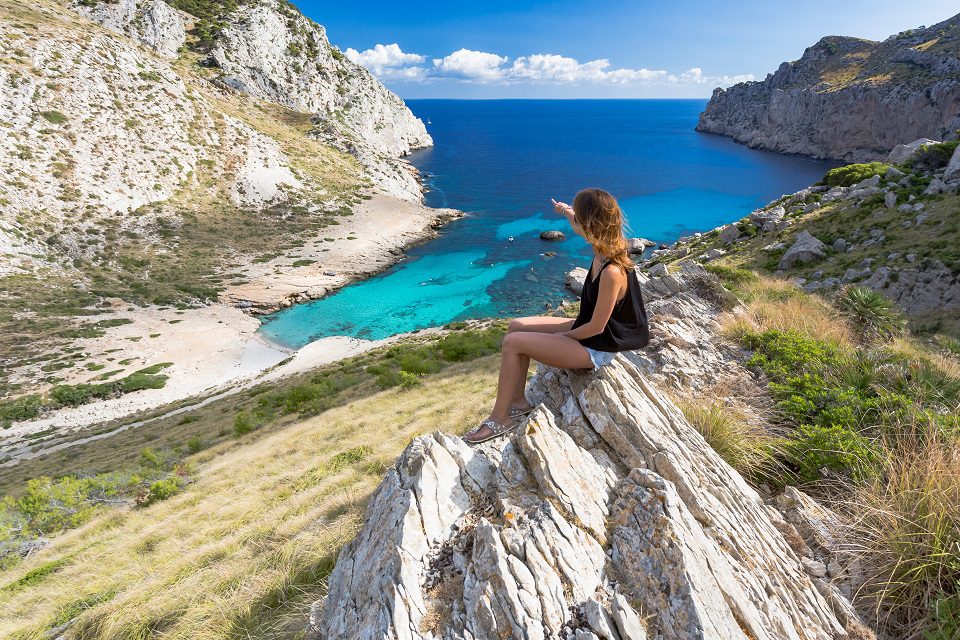
Dani, our guide, ducked beneath the threadbare prayer flags nailed over the cave mouth and smiled, pointing at an old mattress slid between two stalagmites: “Hippies!” he chuckled, “I pulled a whole kitchen out of one of these caves”.
But relics of Formentera’s psychedelic age – a time when Bob Dylan was said to have wintered here in a windmill – were few as we scrambled the cliffs of La Mola. The sun dimmed and we slid through another gash in the rock. Inside, my torch beam dwindled in the vast black, then splashed across a huge stalactite shelf hanging from the ceiling, stretched out like a pale, empty banqueting table.
“It takes 100 years for 1cm of stalactite to form,” whispered Dani. Civilisations had come and gone in its making, I thought, as we emerged to the red glow now bathing the cliff. We’d scrambled through megalithic burial sites, hippy dens and geological glories. It was a far cry from my idea of the Balearics.

Some 32 cycling and walking trails web the little island, weaving old Roman roads, rose-pink salt pans etched with flamingos, sun-lit fig orchards and 18th-century torres (towers) built to spot the Turkish/Barbary pirates that once ravaged this region. Even today, Dani is the only walking guide to set up here, and it’s easy to explore its fringes in isolation. Then there’s the coast…
The next day, I pedalled to Es Pujols in the north. Off its sands lie the planet’s oldest living organism: posidonia, an ancient seagrass endemic to the Mediterranean shallows and some 200,000 years old. It acts like coral, helping to stop erosion, and its UNESCO-listed meadows are home to myriad fish.
After a snorkel, I joined my catamaran co-captain, Alessandro, and we made our way to S’Espalmador, a slip of sand and scrub off Formentera and part of Las Salinas Natural Park. It was for sale at £19.5m a few years ago, but visitors still drift into its bays. We made for the far north, where few venture.
“People say the house here belonged to one of Franco’s brothers,” said Alex – it made sense; El Generalissimo used Formentera as a prison in the 1940s. But S’Espalmador’s interior is off-limits, so we pulled into a near-empty bay under a black-and-white lighthouse. I splashed ashore and scrambled to the old torre, its ancient walls baking in the sun.
On my final day I cycled into Formentera’s west. Bumping past ruins and down dirt roads without any shade, I emerged breathless and hot at Cap de Barbaria’s lighthouse as the light fled. Romans, pirates, fascists, hippies-all have laid a claim here. Travellers are just the latest invaders. But, as Dylan might say, the times they area-changin’.
When to go – Year-round, though between July and August are best avoided if you want to explore the trails; Formentera might be the coolest of the Balearic isles but temperatures top 30°C at this time and there’s little shade. Be aware that a lot of the island closes down during the off-season.
Getting there & around: British Airways fly direct to Ibiza year-round from London’s Gatwick, Heathrow, City and Stansted airports from £90 return; budget airlines fly from UK airports between March and October from £34 return.
From Ibiza Airport, take a taxi to the port (15 mins) where Balaeria, Trasmapi and Aquabus ferries connect to La Savina on Formentera. Taxis on the island are pricey; it’s cheaper to rent a bicycle or moped for three days, but you’ll need a good mountain bike for the trails.
Where to stay: The white sands of Migjorn beach are quiet and chic, and play host to the stylish Gecko Hotel, well-placed for sunset strolls on the boardwalk; doubles from €221/ £195pn including breakfast. Back in the capital of Sant Francesc, Hotel Es Mares is a charming small-town base complete with pool and spa.
Where to eat: The best dining views on the island are found at the hilltop eatery Es Mirador in La Mola, but make sure to book, especially at sunset. On the sands of Migjorn, Es Arenals has good, fresh seafood, with a fine paella on the go. And for scenesters, Can Carlos in Sant Francesc Xavier is the place to be seen-its twinkling terrace setting matched only by its Mediterranean fare and fine cocktails.
Day 1 – Subterranean La Mola Blues
Rent a good mountain bike and track the main road east for the steep climb up La Mola, stopping to squint at the 3rd-century ruins of a Roman fort.
The Cami Roma sees you spill through pine forests before winding the clifftop walking trail to Es Ram. At its northern tip, either sidetrack to La Mola El Pilar’s ‘hippy market’ (Ruta 25) or bump along Ruta 32, past Bob Dylan’s windmill, to the lighthouse that Jules Verne dubbed ‘the end of the world’.
Freewheel downhill to Migjorn beach for lunch. Es Arenals does a fine beachside paella, while a post-prandial pedal (or coastal stroll) west takes you to the Pides Catala tower – now renovated and re-opened. Climb up and gaze out.
Es Mirador in La Mola has the best views on the island and fine seafood. It’s also a meeting point for Walking Formentera’s evening Seven Caves tour (€20/£18), so grab yourself a scenic early meal. From there, guide Dani ferries you to La Mola’s northern cliffs, where you can don a helmet and clamber 4000-year-old burial caves and geological formations for 3.5 hours as the sun dips over the Balaeric Sea.
Day 2: Blowin’ in the Wind
Start in languid capital Sant Francesc Xavier – all whitewashed fronts and open-air cafes. Grab breakfast at Cafe Matinal, across from the 18th-century church that once doubled as a fort, though its pirate-shooing canons have long been removed.
From there, walk north to Estany Pudent (‘Stinking Pond’), the island’s largest brackish lake. The salt industry once sustained Formentera, and the old harvesting machinery they used can still be seen in the capital’s Ethnological Museum. A trail (Ruta 2) tracks the water’s fringe, offering front-row seats to spy flamingo, egret, plover and heron. Then circle to the far shore to seethe crumbled ruins of an ancient megalithic sepulchre.
Grab lunch in town then pedal up to Pujols beach. Offshore lies the oldest posidonia on the island – grab a snorkel and get up close. It’s also the base for Wet4Fun, who run kayak tours of the coves and catamaran trips.
Powered by wind, breeze your way up to S’Espalmador, off Formentera’s northern tip. Wander to its tower and swim crystal waters in near-isolation. Finish back in town on the terrace of chic Can Carlos, with a gin cocktail in hand and fine Mediterranean fare.
Day 3: All Along the Watchtower
Pedal up past Estany des Peix, the smaller of the two salt lagoons, and watch for wall lizards playing chicken with your tyres. It used to be a fishing town and boats still go from the inlet.
Breakfast in the port of La Savina, then continue north (Ruta 1), cycling dusty roads to the island’s tip. The sands (Illetes & Llevant) are beautiful but busy! En route you’ll see Moli des Carregador, a pumphouse that used to funnel seawater to the salt pans but is now a cafe with particularly fine views.
Loop down to Can Marroig on the east coast (Rutas 4 & 5). This public farm sits amid cicada-rattling pines, secret shores and wild wetlands, so bring a picnic. It’s a fine birding spot and its 17th-century farm house has a rich past, having doubled as a hotel/secret synagogue in the fascist 1940s.
Nearby Cala Saona (Ruta 3) is a rather beautiful cove and beach. The old Formentera still exists here in its slipways and escars (boat huts), and there’s plenty of caves to kayak.
Finally, pedal the treeless stretch south to Cap de Barbaria lighthouse (Ruta 9 pictured) – Africa lies 110km away hence the pirate tower. Look for Peregrine falcons on the cliffs, while a nearby ladder leads down to a sea cave with fine views. Finish back in town at Es Mares restaurant.



